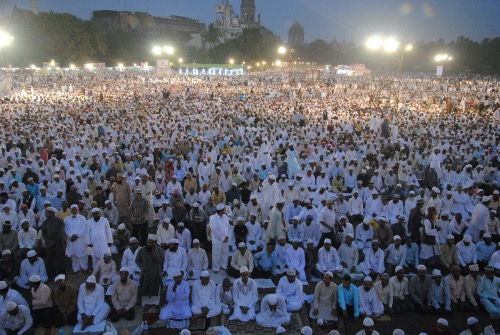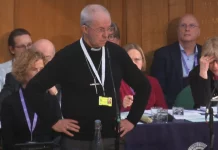I had wanted to write only theology and spirituality. Raw politics always presents added complexities. It is too often the practice of power in the setting of prejudice. But in the West all politics takes place within a framework of ethics. We are not yet suffering totalitarianism, though through self-indulgence and laziness, we may yet soon be.
The events in Gaza and Israel have, however, made it impossible to write about only theory and history. The risk of appearing partisan has to be faced. In the present circumstances public discourse takes the form of appearing to be fixated on the question of which nations’ dead babies one is more outraged by.
One would always hope to be able to write “and we are all against babies being murdered” but after the Hamas escapade which involved either burning or beheading Israeli babies, even that moral refuge is denied.
This commentary is not about which nation’s dead babies we prefer, nor even, though it might reasonably be, which religion we prefer. It is about power and mercy, or forgiveness. We might try to be a bit more subtle and suggest that it is about power and justice and mercy. In each case justice, not being an absolute, is viewed through the lens of either power or mercy and forgiveness.
However we do our history, we can agree that Jews and Arabs both claim Palestine as their home. It doesn’t help for either side to deny that. The problem is though that each side draws on different moral sources to justify it. So from the very beginning there is no common scale of values one can use to act as a referee.
The two state solution is an obvious compromise, but there are many within Islam who won’t have it. They are demanding all or nothing. This is not spoken about much in the public media but it is a fact. Hamas is using its people as a human shield because it is placing power before the interests of its people; justice (as it sees it) before mercy.
Our decadent society is characterised by an unwillingness to look at any aspect of reality it does not find congenial. TS Eliot nailed it when he wrote that humankind “cannot bear much reality”. We do worse than that, we deliberately sidestep it when reality challenges our egos or our self-interest.
Part of the difficulty in pursuing an ethical debate is that it appears that our decadent secular society cannot and will not face the reality of the implication of Islamic values.
Why is it that so many of the adherents of Islam won’t compromise over Israel? Sadly, because they are committed to what can only be described as a despising of Jews and perhaps even a hatred.
In public commentary the secular response to being faced with this energised anti-Semitism is “that can’t be true. After all, it is not very nice”. The “nice” that secularism refers to must consist of a kind of “Rousseau-ish” belief in the essential goodness of human nature. Or at least, the moral blankness of human nature that education can always improve. It prefers the nice over the real. It has no mechanism for facing or dealing with evil.
Liberal secular commentary doesn’t manage the possibility of evil. (And it has curious double standards about what it considers hatred.)
Christians and Jews however share a common understanding of revenge and power. Both see it as dangerous and set out to contain it within limits.
In what counts as an astonishingly enlightened ethic stretching back 2,500 years, the Jewish law set up to restrain revenge by insisting it should be contained according to the rules: an eye for an eye and a tooth for a tooth. Some people are inclined to see this as a rather brutal gauge of reciprocity. But in fact since revenge is humanity’s default response to pain and outrage, it is not that. It is the containment of revenge.
The whole conversation of what is a proportionate response for murdered babies and kidnapped grannies turns on that issue.
Christianity attempts something almost unbelievable in that it forgoes all revenge and offers to soak up evil and violence by turning the other cheek. This is how it recommends the subversion of raw hostile power. This is not so much an admirable ethic as almost an impossible one. In fact it can only be achieved by those who have surrendered their will and their emotions to Christ. Our experience is that it is only Christ in us that can do this. It is far beyond an act of human will even for the most dedicated.
When Jews and Christians fall short of these ideals it is possible to call them back and invite them to repent. If they pursue hatred and revenge they are being bad Jews and bad Christians and can in theory be held accountable for it.
This, however, is not true for Islam, and it is this enormous difference between the world views of the three monotheisms is that accounts for much of the intractability of the conflict between Islam and its neighbours.
Islam, as a hybrid political and religious movement is committed to spreading its practice across the world. Islamic thought divides the world into two: dar al-Islam – denoting regions where Islamic law prevails and dar al-harb (lit. territory of war), denoting adjoining non-Islamic lands whose rulers are “called upon” to accept the rule of Islam.
The problems or conflicts come when the adjoining territories decline to accept Islam. Jihad follows. Jihad can be either a military or spiritual struggle.
It is true that forgiveness has an honourable place in the Qur’an but it is contextual. Forgiveness is not a priority when the dignity or rights of Islam are at stake. It is not appropriate to forgive blasphemy against the prophet Muhammed for example. And so in Pakistan today for example Christians are being accused of blasphemy, and then face the severest penalties, often being killed.
All three monotheisms want justice, but whereas Christianity and Judaism set out to balance justice with forgiveness and compassion, Islam prioritises power and (as it sees it) justice.
Western commentators would do well therefore in adjudicating the ethics of Gaza to ask themselves why so many Islamic communities are implacably committed to the destruction of Israel? And ask whether forgiveness (and reconciliation) should not play a more prominent role in our global value system than they do. And perhaps, it would be helpful to the world-wide debate about the Middle East to invite Islamic apologists to explain why, in their value system, it is not given priority.
Catholics may also want to give some more thought to the reflections of Bishop Fulton Sheen who wrote: “While Communism is the greatest threat to Christianity from within – by stealing the human soul – Islam is a threat from without because historically, it has spread its religion through fear and force.”
Interestingly, both Communism, and Islam might be understood as Christian heresies, deformation of Christian revelation. Equally both the utopianism of the Left and (for the moment let us place Islam on the Right) the idealism of the Islamic Right are committed to using power or force to achieve their aims.
It is only Christianity that prioritises the will and choice of the individual in the matter of spiritual or political salvation. Communism and Islam both practice a form of collectivism in which the freedom of conscience and the integrity of the individual take second place.
And perhaps that is why we are finding ourselves in our own culture ambushed by a coalition of both Left and Right, Wokery and Islam. Together they are imposing a restriction on the freedom of speech we have enjoyed until now with a chillingly new and narrow definition of Islamophobia. The political intention is for this “hate crime” to be imposed by the criminal law. We will have replaced an old and unused Christian blasphemy law for a new and ready-to-be-used Islamic one. Forgiveness will not be an option.
We should note that in the struggle with wokery, the world of political correctness allows for no forgiveness either. Nothing is forgiven in thought crime. No tweet goes unpunished. No apology is accepted.
If Fulton Sheen is right, Christians should engage themselves in the arguments in the Middle East by highlighting that without forgiveness and freedom of choice, our civilisation is doomed to engage in unending power struggles unfettered by the solution offered by Christian ethics.
The history of Communist totalitarian domination, and Islamic political domination as we see it in republics like Iran and elsewhere, should remind us of what we lose if we allow Christian faith and ethics and its vision of humanity to be overcome too easily by its competitors.
We are not choosing so much between the deaths of Palestinian and Jewish babies, as between ideologies that preference power and those that prioritise forgiveness.
If this appears too theoretical, we might look at the historical figures of Marx, Mohammed and Jesus, and the consequences of building a society on the teachings of each; and decide which we prefer, which we would want to live with, and what price we are prepared to pay to do so.










